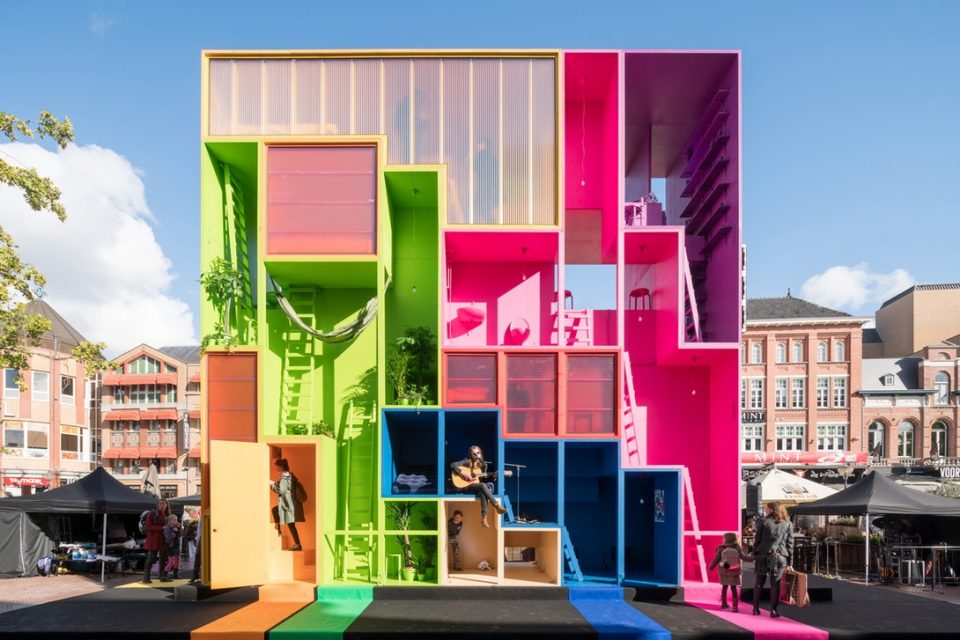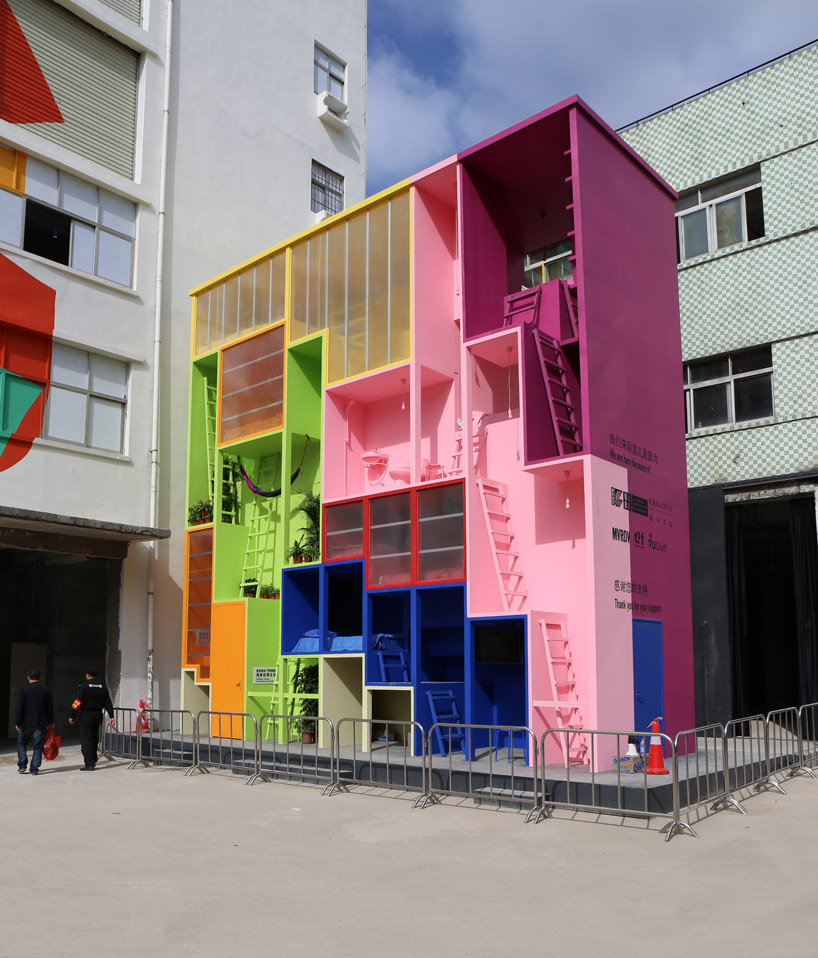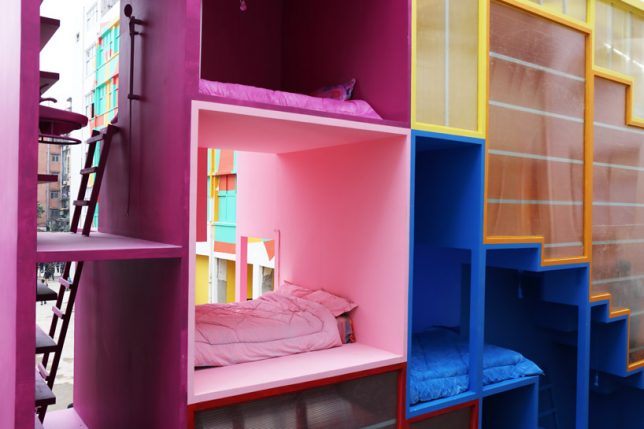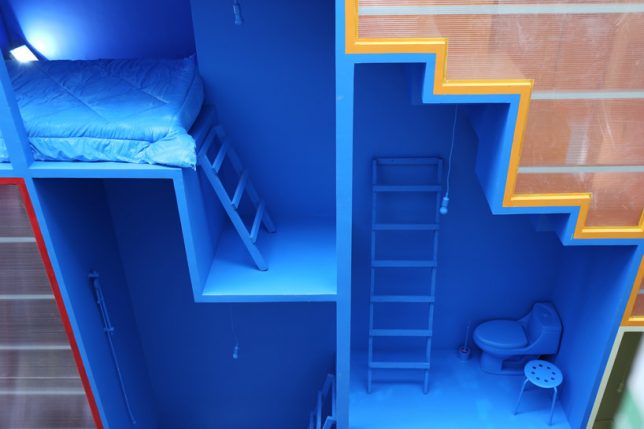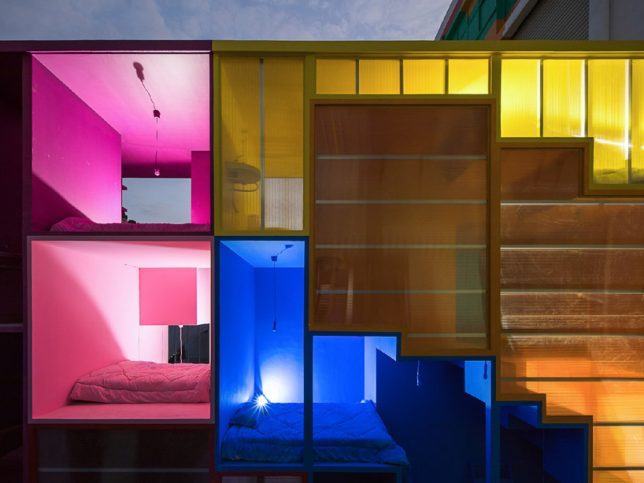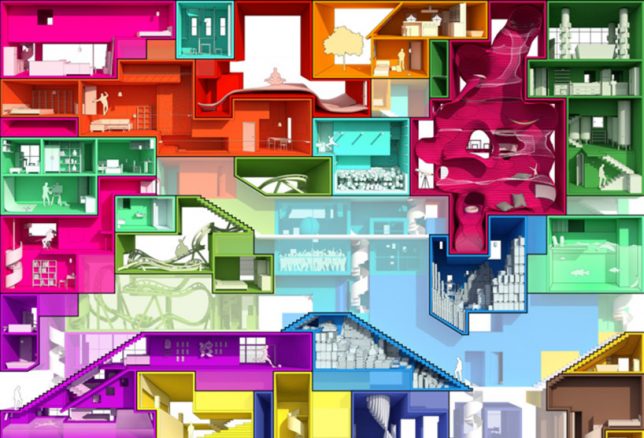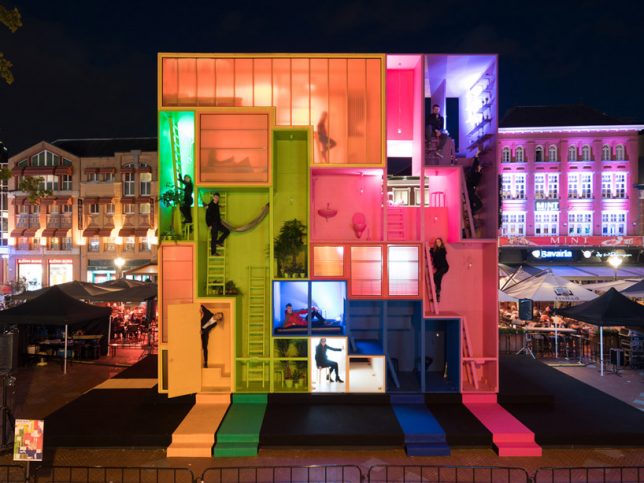One person’s ego-centric vision of how cities should adapt to their own particular individual needs encroaches upon the dreams of another, as revealed by MVRDV’s Tetris-like open-walled ‘(W)Ego House.’ The design is part art installation, part futuristic vision, part warning against architecture that’s one-size-fits-all. Originally created in 2015 and displayed at Dutch Design Week 2017, it’s now reassembled for UABB, the seventh Bi-City Biennale of Urbanism and Architecture in Shenzhen.
MVRDV worked with The Why Factory, a think tank and research institute associated with the Delft University of Technology, to create the installation, which “represents a window into the future of adaptable housing to the user’s needs. The vision allows the coexistence of multiple lifestyles in an optimized dense reality.”
Dwelling on the concept of coexistence, the architects posit that we all have to learn to negotiate with each other to optimize use of limited urban space. The layout of (W)ego is meant to be adaptable and reconfigurable, though the installation displays it as stacked static rooms.
As far as the architects are concerned, this process of negotiation is a good thing, and W(Ego City) displays a novel way in which various kinds of housing can be Tetrised into a single building taking up a relatively small footprint in a city where undeveloped land is hard to come by. They argue that every dwelling could be unique, each one ergonomic and tailor-made to particular spatial needs. Some people might need an accessible space all on one level toward the bottom floor, others may prefer a more unusual space that requires active climbing, others are happy to pay less for a smaller and simpler unit.
That may be true, but is the firm accidentally making a statement on the impact of class, and how the dreams of the rich impede upon the everyday comfort and survival of those with fewer resources at their disposal? While some might look at (W)Ego City and see a playground where they can choose the customized residence of their heart’s desire, others see a maze of ridiculous spaces that aren’t just unavailable to them, but produce irregular, impractical, virtually unusable ‘leftover’ spaces that would likely rent for lower prices.
MVRDV co-founder Winy Maas says “Through gaming and other tools, (W)ego explores participatory design processes to model the competing desires and egos of each resident in the fairest possible way.”
But when multiple people are ‘negotiating’ with each other to build their own spaces however they want within a limited envelope, and not everyone has the same financial resources, physical strength, entitlement and pushy personalities, who wins?
